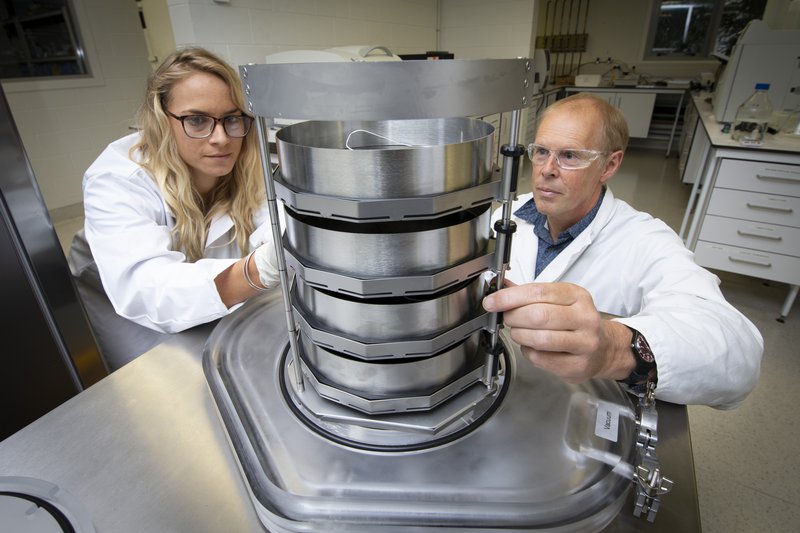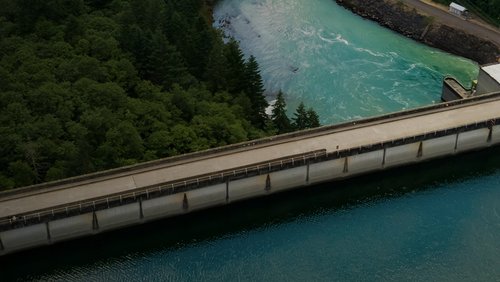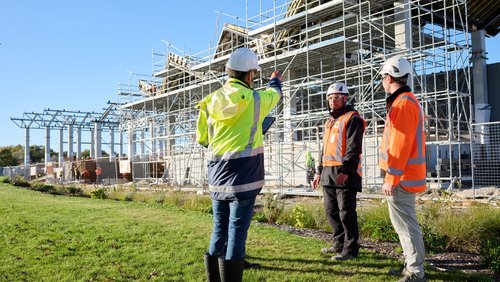4 Jul 2019
This month we head to Palmerston North and catch up with Richard Haverkamp. Richard is a Professor of Nanotechnology in the School of Food and Advanced Technology at Massey University, and a Fellow of Engineering New Zealand.
What is your role at Massey University?
I teach students working towards Bachelor of Engineering in Chemical and Bioprocess Engineering and the Bachelor of Food Technology degrees. My work mainly involves delivering undergraduate lectures, creating and supervising final year student projects, supervising PhD and postdoctoral fellow research and carrying out research of my own. There are a lot of other elements to my work, including everything from developing grant applications for research to reviewing and editing journal papers and grant proposals. But I still get hands-on involvement in research projects (and mocked by my colleagues for doing something other than just "managing"). There’s also a small dose of administrative work, as with most jobs.
Describe a typical day for you
My day usually starts around 5am with checking the emails that arrived overnight. I work with a few companies and academics abroad so there is usually something interesting. I typically do three hours work at home before I head into the office. I find the only good time to do work that requires real concentration is first thing in the morning or over the weekend – that’s when I do research paper writing or good thinking on problems. It’s also when I am least likely to get interrupted by emails demanding my attention.
What a typical is day depends on the time of year. If it’s the period when I have lectures then I have essentially no discretionary time. When I don't have lectures, I try to spend some of the morning doing important things that require concentration like those related to research projects. I’m less focussed in the afternoon so that’s filled with administrative activities and making phone calls or replying to emails that I’ve put off. I might work on some data processing, paper reviewing or journal editing after dinner. I don't watch television and I probably work too much but it’s as much a hobby as much as it is work.

Professor Richard Haverkamp in the laboratory with postdoctoral fellow Dr Hannah Wells
What’s the best thing about teaching students?
Students are so full of enthusiasm for life and their studies – it can't help but rub off a bit. The students are young and starting out learning for what is likely to be an exciting career. They’re sure that anything is possible in their careers and in the world, and that’s pretty much true. This optimism and hope for the future is so positive and good. Whereas when you get to my age, you realise that the possibilities for yourself have become much more limited, and what you are is what you will largely remain. Getting this positive input from students is very life giving and good.
Of course, I have a lot I still want to achieve. Keeping the postgraduate students engaged, productive and challenged drives me forward, while seeing the undergraduates starting towards amazing careers provides a vicarious sense of excitement.
The job of an academic is the best one I’ve ever had because it always has the possibility to be intellectually challenging – there’s always more to learn, understand and create.
Final year engineering students undertaking a BE usually carry out a final year research project. What would be your dream project to supervise?
I get a dream project almost every year. The projects usually fit into some larger research project I’m doing so that undergraduate students can work with more senior researchers (PhD students and postdoctoral fellows) but still has a well-defined project within that. For me that’s good because I can share the supervision and means the work gets to have a concrete and useful outcome that’s internationally significant.
I do a lot of work at the Australian Synchrotron and like to take undergraduates there. We work around the clock for 24 or 48 hours at the synchrotron. The students seem to enjoy the night shift and find it exciting to be left in charge of part of a half-billion-dollar piece of equipment in the small hours of the morning. I prefer my sleep.
Why are you a member of Engineering New Zealand?
It’s a way of contributing back and being part of a community of professional engineers.
How do you engage with Engineering New Zealand?
My engagement recently has been pretty limited because I’ve spent a large portion of my time either overseas or travelling within New Zealand for various projects. I’m on the local branch committee, but I’ve been pretty poor at attending or participating because I’ve been away. Previously, I was an active branch chair who organised lots of events, and for seven years I was on the Board of Engineering New Zealand (IPENZ at the time) and some of the subcommittees including for the formation of the CPEng. Much of my engagement is now via email and publications which is second best to engaging with fellow Engineering New Zealand members in person.
What’s your favourite piece of engineering in Palmerston North?
I like the food pilot plant at Massey University. It’s a small scale processing plant but has many of the interesting parts that you’d see on larger plants. It’s adaptable to all sorts of applications, which makes it even more interesting. It’s got lots of stainless-steel pipework and vessels, control valves, monitoring equipment – what is there not to like about it?
What do you do in your spare time?
I like to walk in the hills. Once I called it tramping but now I tend to mostly just do day trips to get above the bush-line. Sometimes I’ll take a gun with me and pretend I’m hunting but the gun is mostly an excuse to walk slowly and stop often and enjoy just being there. I have a few chainsaws and spend too much time felling trees and turning them into firewood, along with a tractor that is the same age as me to haul the logs to the woodshed prior to being cut up.
I also normally have a long list (which never seems to get shorter) of things that need to be fixed or made, plus some beehives and vegetable garden. I always hope to do more skiing in the winter.




